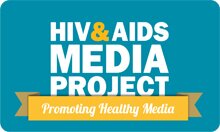2000: The cost of treatment
The cost-benefit analysis of treatment of the HIV/AIDS epidemic was a central concern of the South African government in 2000, according to PAC Health Secretary Costa Gazi. Gazi said the government's reason for not providing anti-retroviral drugs to pregnant women was to reduce the potential orphan burden in the country.
Gazi noted in an interview with the Citizen:
"I have suggested that one rationale for refusing women AZT is that the government does not know what to do with the AIDS orphans. If it refuses anti-retroviral drugs to pregnant women then many of those children will die before they are seven and the country won't have so many orphans. Tshabalala-Msimang said that these remarks were insulting and defamatory. In fact I think that as Zuma always said cost is the real reason behind the refusal. It does not fit in with the GEAR policy which demands an immediate reduction in social expenditure. The government is frightened that if it starts to provide anti-retroviral drugs to pregnant women it won't be long before women who have been raped will demand them — and then the 4 million or so who are HIV+ but who cannot afford the drugs. There's no way the government's economic policy can accommodate such expenditure."
In July 2000, presidential spokesperson Parks Mankahlana implied that providing antiretroviral treatment to infected pregnant women worried the government because of the number of surviving orphans this would create. "A country like ours has to deal with that," Mankahlana told Science. "That mother is going to die and that HIV-negative child will be an orphan. That child must be brought up. Who is going to bring the child up? It's the state, the state. That's resources, you see?"
Mankahlana later labeled the quotation in Science magazine as "a complete fabrication". After Science responded saying they had the quote on tape, Mankahlana said: "I have issued a statement denying what I am alleged to have said … That means I repudiate what I am alleged to have said. Whether I have said it or not, it means that statement is considered by me to be wrong or unacceptable. That should then settle the matter."
A Time article asked if Mbeki's appeal for assistance from the West "wouldn't be more persuasive if his government weren't spending some $5 billion on new jet fighters and submarines when it is AIDS, rather than some foreign military, that will kill half of South Africa's current generation of teenagers if its spread is unchecked."






